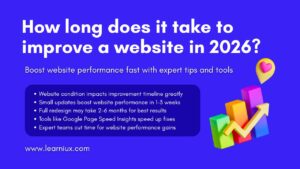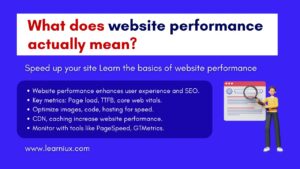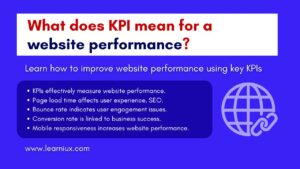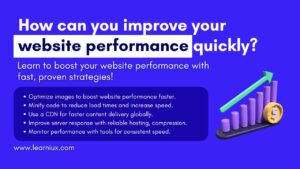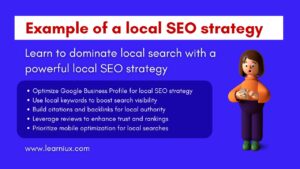Search engine optimization is a cornerstone of digital success, enabling businesses to climb search rankings, drive organic traffic, and effectively engage audiences. SEO marketing services include strategies such as keyword research, content optimization, technical audits, and link building, all aimed at improving a website’s visibility on search engines like Google. The right tools can make or break this effort, streamline the process, uncover insights, and drive measurable results. This guide explores the essential tools used in SEO marketing services, covering their features, benefits, and practical applications to help businesses thrive in a competitive online landscape.
Keyword research lays the foundation for any SEO campaign, identifying the terms and phrases that users are typing into search engines. Without an understanding of what your audience is searching for, even the best content can fall flat. A free tool within Google Ads, Google Keyword Planner is a go-to for beginners and pros alike. It provides search volume data, competition levels, and keyword suggestions based on real user behavior. By entering seed keywords, you can find related terms, estimate clicks, and gauge how difficult it might be to rank for them. For example, a small business selling eco-friendly products could use it to find terms like “sustainable home goods” with moderate search volume but low competition, which gives it a good chance of ranking. The tool’s integration with Google Ads also makes it valuable for aligning SEO with paid campaigns, though it doesn’t have the depth of paid options.
For more advanced keyword research, Ahrefs Keyword Explorer stands out. It offers a large database of keywords across multiple search engines, including Google, Bing, and YouTube. You can analyze keyword difficulty, estimated clicks, and even global search volume, which is ideal for international campaigns. Its “Questions” feature is particularly useful, pulling up phrased search queries in the form of questions like “how to choose eco-friendly packaging,” which can inspire blog topics or FAQ sections. The SEMrush Keyword Magic tool is another powerhouse, providing millions of keyword variations, including long-tail phrases that are easy to rank for. A content creator targeting “vegan recipes” can search for specific terms like “quick vegan dinner ideas for beginners” with this tool. SEMrush also groups keywords by topic, making the process of creating content clusters easier. Ubersuggest, created by Neil Patel, is a budget-friendly option that offers keyword suggestions, search volume, and basic competitor analysis. While not as robust as Ahrefs or SEMrush, it’s perfect for small businesses or bloggers starting out.
On-page SEO focuses on optimizing individual web pages to rank higher and provide a better user experience. Tools in this category help improve content, meta tags, titles, and internal linking. Yoast SEO, a popular WordPress plugin, is widely used for its simplicity and real-time feedback. It analyzes your content as you write, assessing readability and keyword usage while suggesting improvements like adding internal links or adjusting sentence length. For example, a blog post about “digital marketing trends” might be flagged for overly complex sentences, allowing for simpler syntax to keep readers engaged. Yoast also generates XML sitemaps and handles schema markup, which helps search engines better understand your content. Surfer SEO takes a data-driven approach, comparing your content to the top-ranking pages for your target keywords. It suggests optimal word count, keyword density, and even specific phrases to include. A marketer optimizing a page for “best running shoes” can use Surfer to make sure their article matches the structure and depth of their competitors’ content. ClearScope, another content optimization tool, excels at creating detailed content briefs. It identifies semantically related terms and tracks how well your content matches search intent, making it easy to create articles that resonate with both users and algorithms.
Backlinks are a key factor in establishing a website’s authority and credibility. Backlink analysis tools help you monitor your link profile, monitor your competitors, and identify new linking opportunities. Ahrefs is a leader here, offering a comprehensive view of backlinks, referring domains, and anchor text distribution. You can see which sites link to your competitors and target similar domains for outreach. For example, a tech blog might find that a competitor’s backlinks come from guest posts on specific sites, inspiring a similar strategy. Moz Link Explorer is another strong contender, known for its Domain Authority metric, which predicts how well a site will rank. Its Spam Score feature helps identify low-quality links that could be harming your site’s reputation. Majestic, with its Trust Flow and Citation Flow metrics, focuses on the quality and quantity of backlinks. This is especially useful for analyzing historical link data, which helps track how a competitor’s link-building efforts have evolved over time. A comparison table of these tools will show Ahrefs leading in depth, Moz in user-friendliness, and Majestic in specialized metrics, which guide users to make a choice based on their needs and budget.
Technical SEO ensures that a website is crawlable, fast, and user-friendly, fixing issues like broken links, slow loading times, and mobile compatibility. Google Search Console is indispensable for monitoring a site’s performance in Google’s index. It alerts you to crawl errors, mobile usability issues, and penalties, as well as showing which keywords are driving impressions and clicks. For example, a retailer might see a drop in traffic due to a crawl issue flagged in Search Console, leading to a faster fix. Screaming Frog SEO Spider, a desktop-based crawler, is a favorite for in-depth site audits. It scans websites for broken links, duplicate content, and missing meta tags, providing detailed reports to guide you in fixing them. A large e-commerce site might use it to identify hundreds of 404 errors, streamlining the cleanup process. SEMrush Site Audit automates technical checks, covering everything from HTTPS issues to Google’s user experience metrics, Core Web Vitals. It’s especially useful for agencies managing multiple sites, as it integrates with other SEMrush tools for an integrated workflow. Combining these tools ensures that your website is technically sound, which is crucial for maintaining rankings.
Content creation and optimization tools help you create engaging, search-friendly content that your audience will love. BuzzSumo analyzes trending topics and identifies influencers, making it easy to create shareable content. For example, a health brand might use BuzzSumo to find out if “gut health tips” are trending on social media, which could lead to a series of blog posts. AnswerThePublic takes a unique approach by visualizing search queries as questions, prepositions, or comparisons. Queries like “yoga for beginners” can lead to questions like “what is the best yoga for beginners” or “how to start yoga at home,” generating ideas for blog posts or videos. Grammarly ensures that content is polished, catches grammatical errors, and suggests tone adjustments. Its plagiarism checker is a bonus for ensuring originality, especially for freelancers who juggle multiple clients. Canva, while not a purely SEO tool, supports content marketing by creating visuals like infographics or social media graphics. A well-organized infographic on “SEO best practices” can attract backlinks and shares, which increases the authority of the site.
Tracking and reporting are essential to measuring SEO success and improving strategies. Google Analytics is the gold standard for understanding traffic sources, user behavior, and conversions. A business can use it to see what drives 60% of their traffic, which can help justify further SEO investments. SEMrush Position Tracking monitors keyword rankings daily, showing how your site compares to competitors, and tracking visibility trends. For example, an e-commerce site can track “winter jackets” to see if their optimization efforts are pushing them into the top 10 results. Ahrefs Rank Tracker provides similar functionality, with additional insights into share of voice and historical ranking data. These tools allow for custom dashboards, allowing users to visualize data in a way that suits their goals. For example, a marketing team can create a dashboard that shows organic traffic growth along with keyword ranking improvements, making it easy to report to stakeholders.
Choosing the right SEO tools depends on your goals, budget, and skill level. Small businesses can start with free options like Google Keyword Planner and Search Console, while agencies or larger brands can invest in suites like Ahrefs or SEMrush for their all-in-one capabilities. Many tools offer free trials, so experimenting with a few can help you find the best fit. Combining multiple tools often yields the best results, using Yoast for on-page tweaks, Ahrefs for backlink strategies, and Google Analytics for performance tracking creates a holistic approach. The SEO landscape is always evolving, with new features and AI-powered capabilities emerging regularly, so it’s important to stay up-to-date on tool advancements.
For those new to SEO, a common question is which free tool is best for beginners. Google Keyword Planner and Search Console are great starting points due to their accessibility and direct connection to Google’s ecosystem. Another frequently asked question is how SEO tools help with competitive analysis. Tools like Ahrefs and SEMrush let you monitor your competitors’ keywords, backlinks, and content strategies, revealing gaps you can exploit. AI-based SEO tools like Surfer SEO and ClearScope are gaining popularity due to their ability to analyze vast datasets and recommend precise optimizations. When choosing a tool, consider factors like ease of use, scalability, and integration with existing workflows. A small blog may prioritize affordability, while an enterprise will need robust reporting and team collaboration features.
Ultimately, SEO marketing services thrive on the right combination of strategy and technology. By using tools for keyword research, on-page optimization, backlink analysis, technical audits, content creation, and performance tracking, businesses can build a strong online presence. Experimenting with these tools, staying informed about updates, and aligning them with your specific needs will set the foundation for long-term success in the ever-changing world of SEO.






















